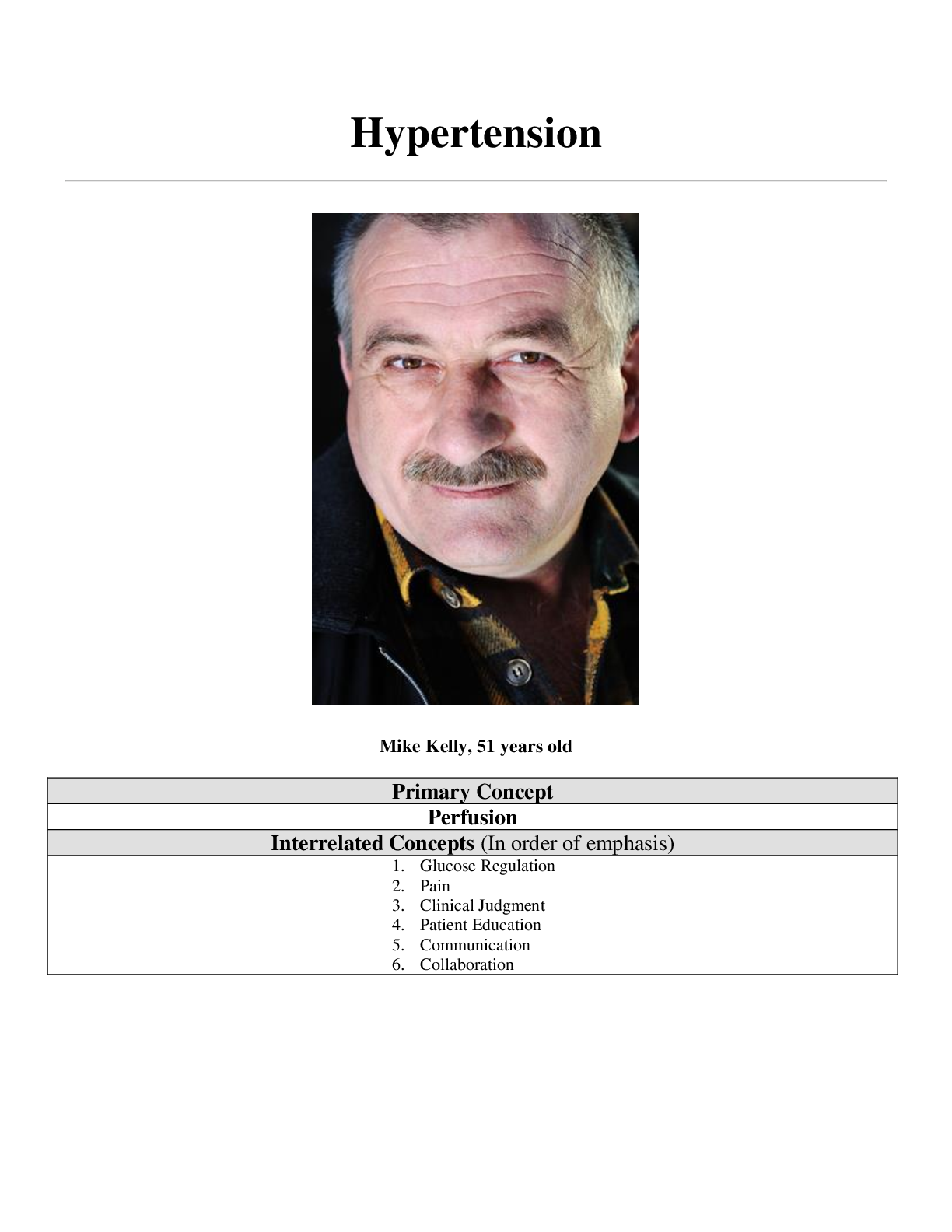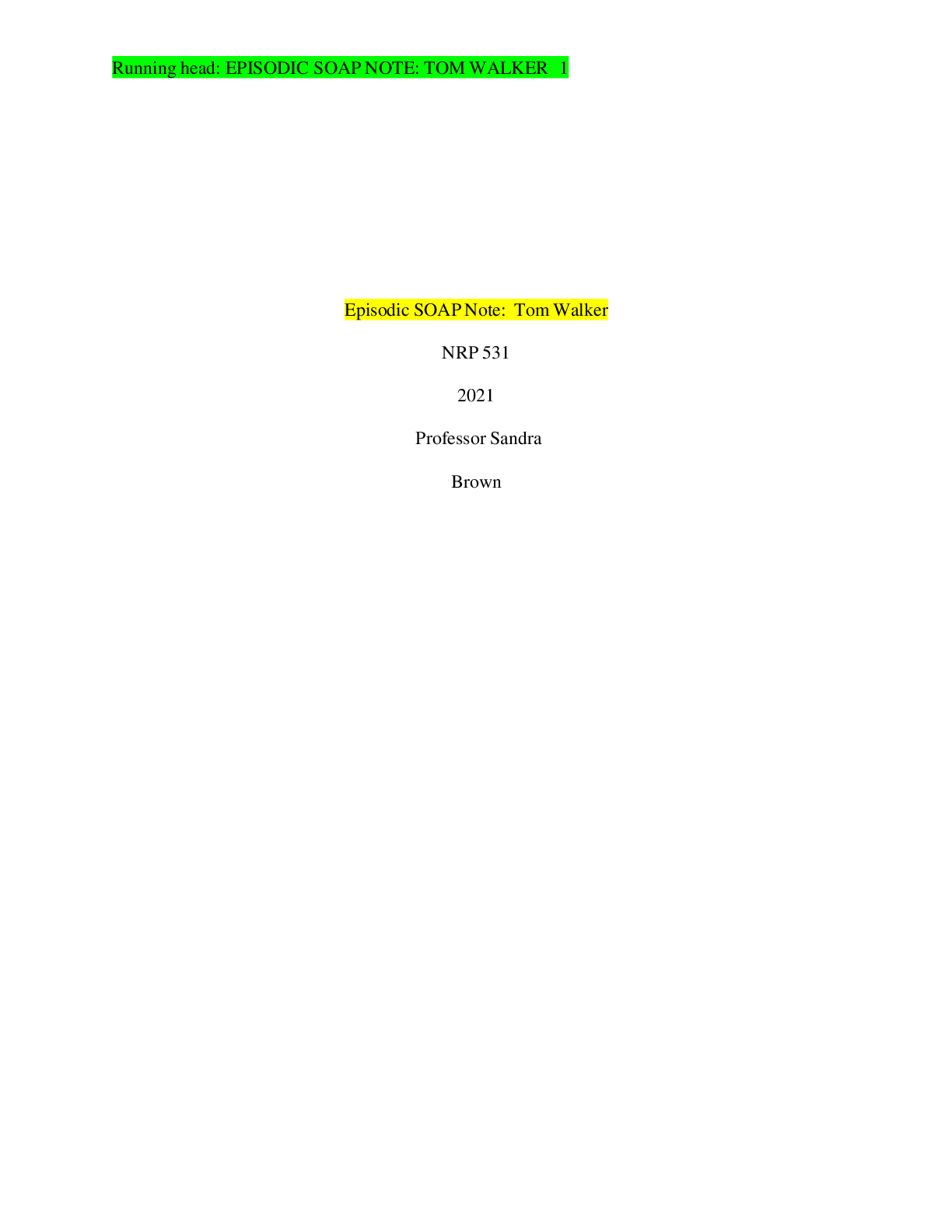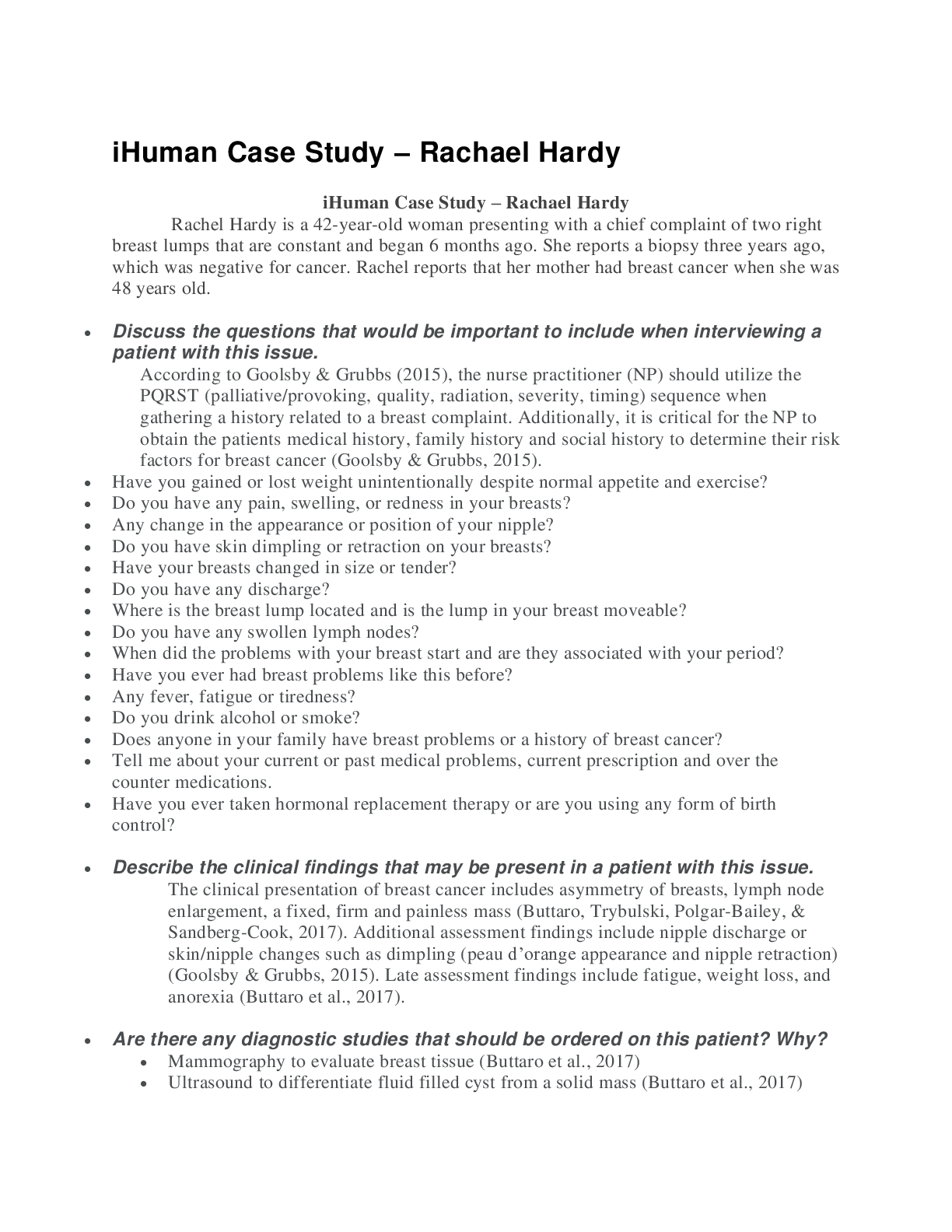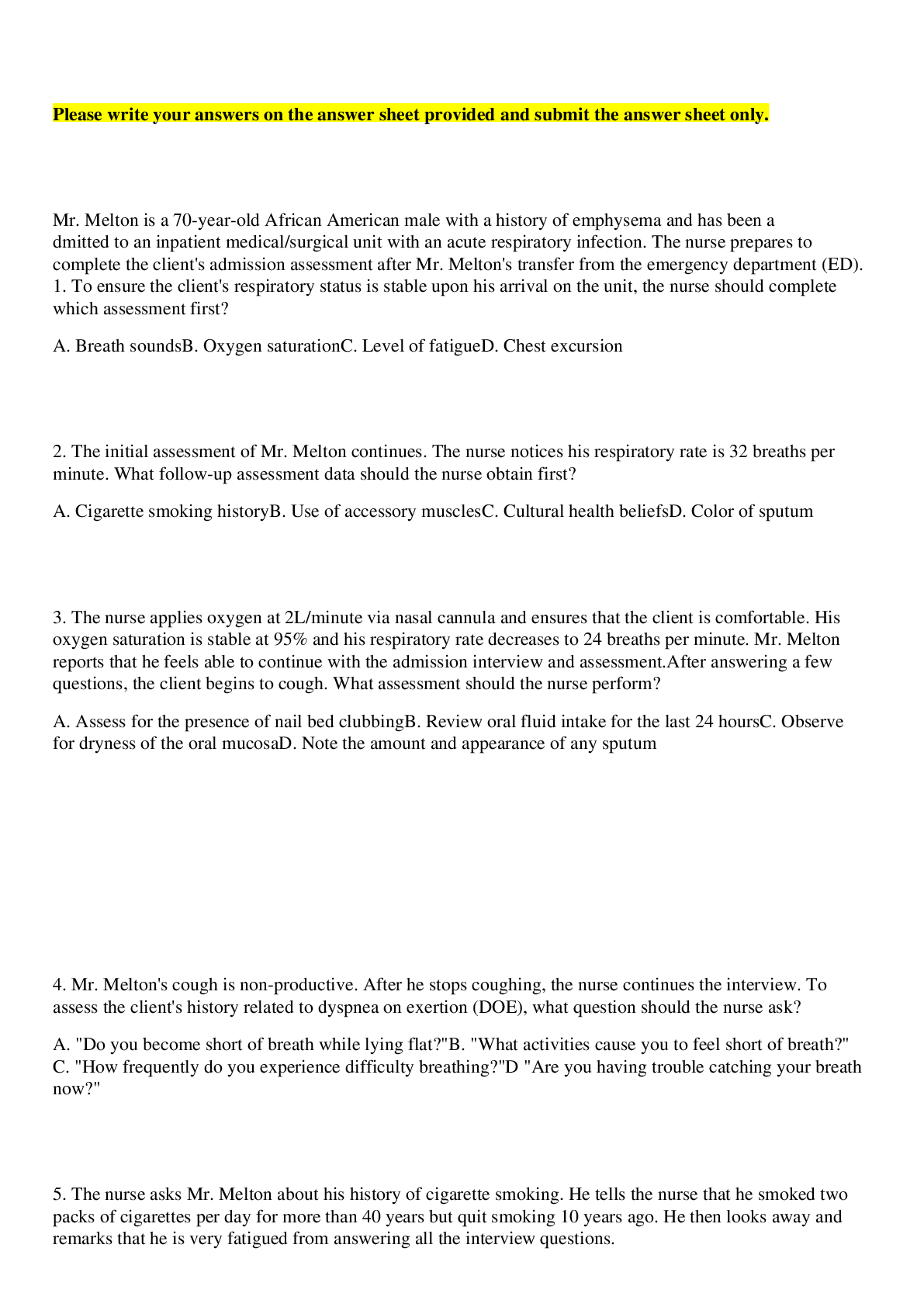History > CASE STUDY > (Answered) HIST410Nk Week 1 Assignment: Case Study – Imperialism and Genocide. (All)
(Answered) HIST410Nk Week 1 Assignment: Case Study – Imperialism and Genocide.
Document Content and Description Below
(Answered) HIST410N Week 1 Assignment: Case Study – Imperialism and Genocide Required Resources Read/review the following resources for this activity: Textbook: Chapter 2, 4 Lesson Minimum of 1 scho... larly source (in addition to the textbook) See additional required resources within the option instructions. Instructions For this assignment, select one of the following options: Option 1: Imperialism The exploitation of colonial resources and indigenous labor was one of the key elements in the success of imperialism. Such exploitation was a result of the prevalent ethnocentrism of the time and was justified by the unscientific concept of social Darwinism, which praised the characteristics of white Europeans and inaccurately ascribed negative characteristics to indigenous peoples. A famous poem of the time by Rudyard Kipling, “White Man’s Burden,” called on imperial powers, and particularly the U.S., at whom the poem was directed, to take up the mission of civilizing these “savage” peoples. Read the poem at the following link: Link (website): White Man’s Burden (Links to an external site.) (Rudyard Kipling) After reading the poem, address the following in a case study analysis: Select a specific part of the world (a country), and examine imperialism in that country. What was the relationship between the invading country and the native people? You can select from these examples or choose your own: Belgium & Africa Britain & India Germany & Africa France & Africa Apply social Darwinism to this specific case. Analyze the motivations of the invading country? How did ethnocentrism manifest in their interactions? How does Kipling’s poem apply to your specific example? You can quote lines for comparison. Option 2: The Armenian Genocide Ethnic hatred is not new to the human race and ethnic hatred also goes hand in hand with some of the causes of World War 1 that we have discussed this week, namely nationalism and imperialism. In nationalism, the people not only believe their countrymen (those who look, talk, sound, and believe like them) are not only “better” than people of certain other countries but they also have the right and possibly even the responsibility to conquer areas with those inferior to them and take whatever resources they feel they need. Add to this the need for the leader of a country to be able to blame a certain ethnic group within that country for their problems. Such was the case in the Ottoman Empire. The Ottoman Turks launched a winter offensive into the mountains of southern Russia early in the war and suffered a severe defeat, both at the hands of the Russian army and the terrible weather they encountered. The Sultan needed a scapegoat to blame the loss on, so he picked an unpopular ethnic minority, the Armenians. Since the people seemed to believe the story, the Ottoman military rounded up as many Armenians as they could and marched them away to their fate. Watch the following videos on the Armenian genocide: Link (video): Armenian Diaspora (Links to an external site.) (32: 43) Link (video): Battle over History (Links to an external site.) (12:04) After viewing the videos, conduct research on the topic and develop a case study based on the following questions: How did the Armenian genocide play on the root causes of World War I, including nationalism, imperialism, social Darwinism, ethnic hatred, and the gullibility of the Turkish people who allowed this to happen and often even supported it. What were the main motivations of the Ottoman rulers who decided to try and eliminate an entire ethnic minority within their country? What was the process the Ottomans went through to round up the Armenians and march them to their deaths? Describe the process of the march and eventual genocide of the Armenians. Why do terrible crimes against humanity always seem to happen during a war? How do foreign governments recognize and deal with this event in their relationship with Turkey? [Show More]
Last updated: 2 years ago
Preview 1 out of 4 pages

Buy this document to get the full access instantly
Instant Download Access after purchase
Buy NowInstant download
We Accept:

Reviews( 0 )
$8.00
Can't find what you want? Try our AI powered Search
Document information
Connected school, study & course
About the document
Uploaded On
Sep 22, 2021
Number of pages
4
Written in
Additional information
This document has been written for:
Uploaded
Sep 22, 2021
Downloads
0
Views
67
















